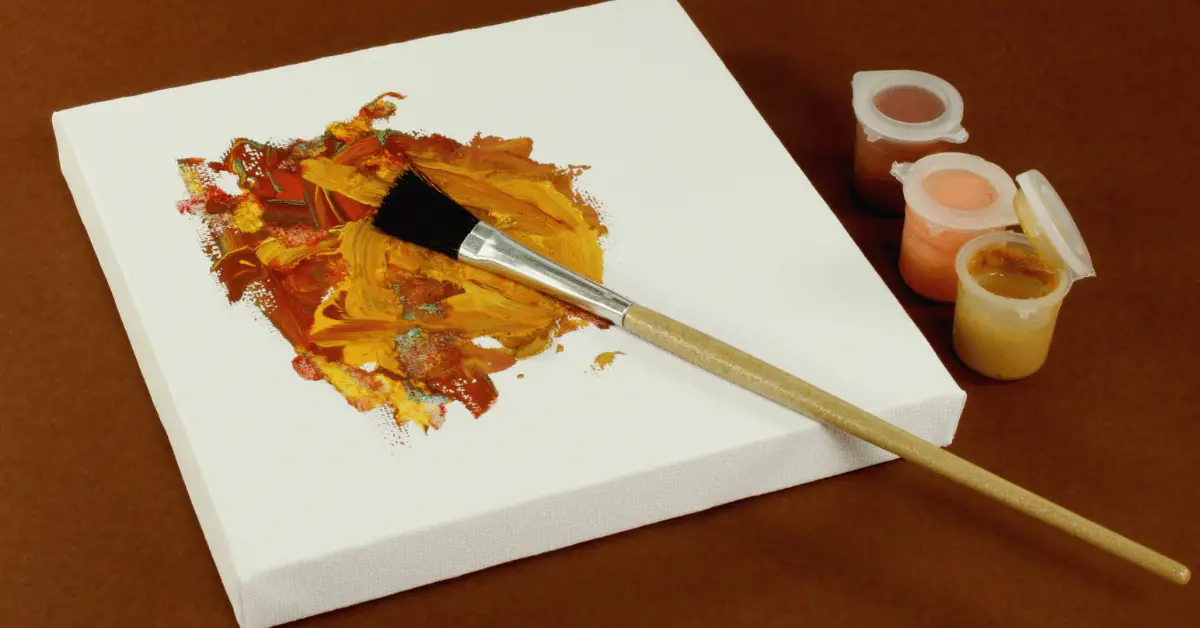Creating art on canvas is a popular form of expression for artists of all skill levels. However, tracing images onto a canvas can be a challenging and time-consuming process, especially if you don’t have access to a projector. Fortunately, there are different methods to project an image onto a canvas without a projector, using materials you may already have at home. In this article, we’ll provide step-by-step instructions and tips on how to project an image onto a canvas without a projector, allowing you to accurately trace and reproduce your favorite images on canvas. Whether you’re a beginner or an experienced artist, we’ve got you covered.
Table of Contents
How to Project Image onto the Canvas Without Projector?
Tracing images onto a canvas is a popular technique used by artists to reproduce their favorite images. However, it can be challenging and time-consuming, especially if you don’t have access to a projector. Fortunately, there are different methods to project an image onto a canvas without a projector, using materials you may already have at home. Here are some ways to project an image onto a canvas without a projector:
Using a Window:
One of the easiest ways to project an image onto a canvas without a projector is by using a window. Here are the steps:
Step 1: Print the image you want to trace onto a transparent sheet or a piece of tracing paper.
Step 2: Tape the transparent sheet or tracing paper onto the window, making sure it’s secure.
Step 3: Place the canvas on the opposite side of the window, where the image is projected.
Step 4: Trace the image onto the canvas using a pencil or a marker.
Using a Lamp:
Another way to project an image onto a canvas without a projector is by using a lamp. Here are the steps:
Step 1: Print the image you want to trace onto a transparent sheet or a piece of tracing paper.
Step 2: Place the transparent sheet or tracing paper onto a flat surface.
Step 3: Place a lamp or a flashlight behind the transparent sheet or tracing paper, making sure the light shines through the image.
Step 4: Place the canvas on top of the transparent sheet or tracing paper and trace the image using a pencil or a marker.
Using a Smartphone:
You can also use your smartphone to project an image onto a canvas without a projector. Here are the steps:
Step 1: Download a projector app on your smartphone, such as the iProjector app or the Projector app.
Step 2: Place the canvas on a flat surface.
Step 3: Place your smartphone on a stand or a tripod facing down towards the canvas.
Step 4: Open the projector app and select the image you want to project onto the canvas.
Step 5: Adjust the focus and distance of the smartphone to project the image onto the canvas.
Step 6: Trace the image onto the canvas using a pencil or a marker.
Tips for Accurate Tracing:
- Use a thin pencil or a fine-tipped marker to ensure accurate tracing.
- Place the canvas on a flat surface and secure it with tape to prevent it from moving.
- Adjust the projection distance to ensure the image is not distorted or blurry.
- Use a lightbox or a bright tablet screen as an alternative to a window or a lamp.
How do I transfer an image to canvas without a projector?
Transferring an image to canvas is an important technique used by artists to create accurate and detailed artworks. While a projector is a popular tool for this task, there are several ways to transfer an image to canvas without a projector. Here are some of the most popular methods:
Using a Tracing Paper:
One of the easiest ways to transfer an image to canvas without a projector is by using a tracing paper. Here are the steps:
Step 1: Print the image you want to transfer onto a regular printer paper.
Step 2: Place a tracing paper on top of the printed image and tape the papers together.
Step 3: Trace the image onto the tracing paper using a pencil.
Step 4: Turn the tracing paper over and place it onto the canvas.
Step 5: Rub the back of the tracing paper with a pencil or a ballpoint pen to transfer the image onto the canvas.
Step 6: Remove the tracing paper to reveal the transferred image on the canvas.
Using Transfer Paper:
Transfer paper is another useful tool for transferring images to canvas without a projector. Here are the steps:
Step 1: Print the image you want to transfer onto a regular printer paper.
Step 2: Place the transfer paper onto the canvas, with the colored side facing down.
Step 3: Place the printed image on top of the transfer paper, with the image facing up.
Step 4: Trace the image onto the transfer paper using a pencil or a ballpoint pen.
Step 5: Remove the printed image and the transfer paper to reveal the transferred image on the canvas.
Using Carbon Paper:
Carbon paper is another option for transferring images to canvas without a projector. Here are the steps:
Step 1: Print the image you want to transfer onto a regular printer paper.
Step 2: Place the carbon paper onto the canvas, with the dark side facing down.
Step 3: Place the printed image on top of the carbon paper, with the image facing up.
Step 4: Trace the image onto the canvas using a pencil or a ballpoint pen.
Step 5: Remove the printed image and the carbon paper to reveal the transferred image on the canvas.
Tips for Accurate Image Transfer:
- Use a high-quality image for the best results.
- Make sure the canvas is clean and free of debris before transferring the image.
- Use a sharp pencil or a fine-tipped marker for accurate tracing.
- Test the transfer method on a scrap piece of canvas before transferring to the final canvas.
In conclusion, transferring images to canvas without a projector is an essential technique for artists. Whether you choose to use a tracing paper, transfer paper, or carbon paper, by following the steps and tips provided above, you can accurately transfer your favorite images onto canvas without a projector.
Conclusion
In conclusion, tracing images onto a canvas can be challenging, especially if you don’t have access to a projector. However, by using a window, a lamp, or your smartphone, you can project an image onto a canvas without a projector. By following the steps and tips provided above, you can accurately trace and reproduce your favorite images on canvas.

